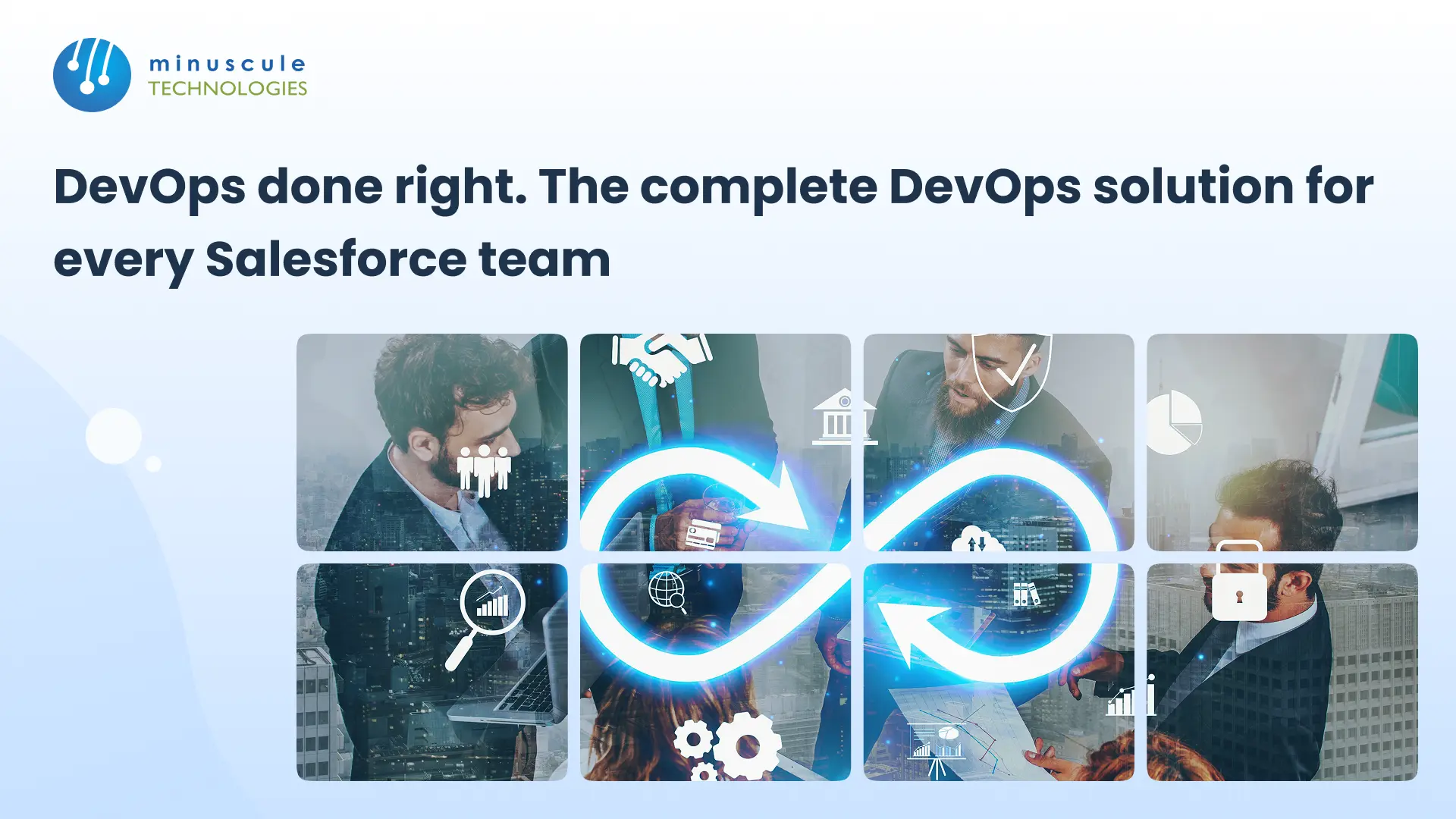
Salesforce is a mighty framework for businesses willing to try automation of workflows, streamline operations, and improve customer relationships. But on the other hand, managing an effective Salesforce environment can be very difficult for an organization in the growing phase. Constant updates, customizations, and integrations present risks such as unexpected changes in the code, bugs, and data loss. What Salesforce teams need for their development, deployment, and monitoring process is a dependable solution to deal with these problems.
A DevOps environment-a collection of practices that bring together development and IT operations-helps Salesforce teams automate and streamline these processes. In this article, we will investigate how a complete DevOps solution for Salesforce can increase team productivity, lower risk, and ensure seamless deployments.
DevOps represents an ethos and system of activity-shaping orientation that seeks to bridge the divide between development and operations effectively. By designing conducive communication and automating critical tasks, DevOps demands streamlining the entire process of software delivery, lessening errors, and increasing the speed of delivery.
To some extent, DevOps stands out for the Salesforce teams, as Salesforce environments are unique in nature. Salesforce is quite customizable; hence, if custom features, integration services, and updates are handled too casually, the potential for complexity bursts. Hence, when there is no proper strategy for following DevOps, Salesforce teams open themselves to:
Implementing DevOps in Salesforce becomes thus significant in ensuring seamless integration, smooth deployment, and controlled management of several Salesforce environments. A strong DevOps solution, therefore, helps these challenges with tools for automated testing, monitoring, deployment, and data protection.
Such a platform can completely change the operations of Salesforce teams:
Salesforce teams confront new updates and change every day. Unfortunately, with changes come risks - the risk of breaking the current functionality that already exists. The cure-all is testing and monitoring to reduce anxiety about those risk changes.
Automatic testing and monitoring are where a platform is forecasting the future reliability and quality for Salesforce deployments.
For a product, usually salesforce data is one of the most valuable assets. It can have disastrous effects on the organization in view of data loss such as errors during deployments or even accidental deletions. A full-fledged DevOps solution for Salesforce provides continuous safety to your Salesforce environments.
Linking the tools of backup and restore makes sure that your salesforce environments are safe and with an assurance of quick recovery after any unfortunate event.
Salesforce deployment is complicated due to the different configurations, customizations, and integrations to be moved across different environments (development, staging, and production). Without automating these processes, the performance will be sluggish, error-prone, and inconsistent.
Automating the deployment process minimizes human error, accelerates release cycles, and maintains consistency among environments.
DevOps is not merely about tools, but concerns establishing a culture of collaboration between developers, operators, and other key stakeholders. A DevOps atmosphere promotes interactions and integrative actions among teams so that no one has a different understanding of an issue or goal.
By enhancing collaborative efforts and providing greater visibility to development processes, the platform increases productivity while minimizing the time given to manual jobs.
End-to-end DevOps platform for Salesforce teams, which is an all-in-one solution for optimization and automation towards key DevOps processes. Unlike several other DevOps tools that are targeted only towards a particular aspect of the Salesforce deployment process, all the key components required are integrated here into a single solution, which includes:
This unified approach helps Salesforce teams practice best while optimizing their workflows, thus reducing the burden of using multiple tools. Teams are hence equipped to work more efficiently and focus on value delivery to the business.
For any project undertaken by Salesforce teams, the relevance of DevOps becomes indispensable to optimize development, deployment, and operational workflows. A well-rounded DevOps platform accelerates the testing, monitoring, deploying, and backing up processes so that the Salesforce environments can remain secure, efficient, and performing.
Salesforce teams who want to adopt DevOps best practices for their implementation lifecycle can have a complete solution from this platform to simplify their development lifecycle.
As a Certified Salesforce partner, Minuscule Technologies specializes in Salesforce solutions integrated with DevOps practices that increase the security, efficiency, and performance levels of your business processes. Let us help optimize your Salesforce workflows and drive success with our expert DevOps services.
Are you looking to harness the complete potential of Salesforce Solution? Have a free consulting session with our expert team. We are ready to lend our hand to examine your CRM, Consolidate the Current Data Management, and figure out the inefficiencies that lay as a hindrance in harnessing the Salesforce power.
Contact Us Today